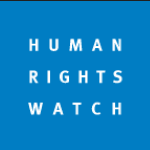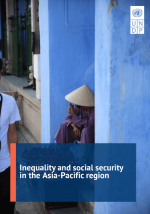| |
|
| |
|
| |
|
| |
Civil Society 7 communiqué calls for progressive & sustainable outcomes at G7 Summit |
| |
|
| |
Progress towards an equitable world – must be more than a promise! May 2022
This C7 Communiqué reflects the policy positions and priorities of Civil7 2022 along the Working Groups and in the section entitled “Actively promote transformative development finance” calls for setting up a Global Fund on Social Protection.
Actively promote transformative development finance. Recommit to the 0.7% ODA target and agree on a clear timeline to reach this target with new and additional resources; mobilize new and innovative sources, including a financial transaction tax, e.g. to finance a new Global Fund for Social Protection.Recommit to the 0.7% ODA target and agree on a clear timeline to reach this target with new and additional resources; mobilize new and innovative sources, including a financial transaction tax, e.g. to finance a new Global Fund for Social Protection. Read more |
| |
|
| |
|
| |
The IMF and World Bank at a crossroads: Decent work, collective bargaining, and universal social protection |
| |
|
| |
Statement by Global Unions to the Spring Meetings of the IMF and World Bank, April 2022
Developing countries face a fiscal stimulus gap and workers everywhere are suffering from insecure work, violations of labour rights, and a lack of social protection. Collective bargaining and worker protections are therefore central to an inclusive recovery by helping reduce inequality and create quality jobs. Global Unions1 call for the International Monetary Fund and World Bank to promote universal social protection and decent work, including the fundamental right to organise and collectively bargain. Strategies and operations should be designed accordingly, including the new IMF trust fund for resilience and sustainability. Debt relief and a permanent multilateral restructuring framework are part of the enabling environment for jobs and recovery. Read more |
| |
|
| |
|
| |
Spring Meetings Opportunity to Reset Approach for Universal Social Protection |
| |
|
| |
 |
Spring Meetings Opportunity to Reset Approach for Universal Social Protection
Human Rights Watch released a report ahead of the 2022 Spring Meetings on the limited success of means-tested, targeted social protection programs in protecting human rights. The report draws on findings from 16 countries and calls on the World Bank and International Monetary Fund (IMF) to adopt a different approach that facilitates universal social protection. During the Covid-19 pandemic, targeted programs excluded millions of people who needed social security to protect their rights, leaving them without adequate food and with other problems. Social protection programs seek to reduce or cushion people from poverty, particularly in situations that affect their ability to earn an adequate income such as sickness, disability, old age, unemployment, and childrearing. Social protection programs can be universal, designed to benefit everyone in a certain group. Or they can be means-tested, targeted to those who meet certain criteria, often based on income. IMF loans and World Bank projects have largely promoted means-tested programs, though the Bank acknowledged universal social protection to be key to combat poverty and inequality. Read more |
| |
|
| |
|
| |
UN inter-agency group recommends strong and financially sustainable socio-economic policies in light of Covid-19 |
| |
|
| |
Financing for Development in the era of COVID-19 and beyond. Report of the Inter-agency Working Group on Cluster 2. Socioeconomic response: Social Protection, Gender, Children, Youth, Health, Education and Human Rights.
At the request of the UN Secretary-General, a working group of 16 UN agencies, programs and offices, coordinated by the ILO, produced a comprehensive report in 2021 for the Secretary-General on lessons from the global response to the Covid-19 pandemic for future policies on social protection, gender, children, youth, health, education and human rights. To help prepare its report, the working group organized a series of consultations with civil society organizations, trade unions, youth, and employer organizations. The Office of the Secretary-General has recently posted the report here and ILO posted reports of the individual consultations here |
| |
|
| |
|
| |
Unions and development cooperation donors emphasise the importance of increased support for social protection |
| |
|
| |
 |
Social protection is one of the key demands of working people for a new social contract and has been at the forefront of government responses to the COVID-19 crisis.
But social protection is facing huge financing gaps that will require the mobilisation of domestic resources coupled with support from development cooperation funds, which are still too low at only 2.7% of all aid funds in 2020.
During a high-level panel debate, ITUC General Secretary Sharan Burrow highlighted the cost effectiveness of social protection: “If you invest in social protection, you will have more than double the amount of the investment back in the mid-term and huge social returns.
“Although ODA alone cannot do everything, it should be a confidence boost for developing countries to commit to more social protection funding and ensure statutory-based, comprehensive social protection around the world. We want seven per cent of ODA to go to social protection by 2030 and an increase to 14 per cent after that.” Read more |
| |
|
| |
|
| |
“UN collaboration on social protection: Reaching consensus on how to accelerate social protection systems building” |
| |
|
| |
 |
UN collaboration on social protection: Reaching consensus on how to accelerate social protection systems-building
FAO, ILO and UNICEF, in conjunction with many other UN agencies and development partners, convened a taking stock exercise to reflect on UN collaboration on social protection. This has resulted in the launch of this review paper that outlines how efforts can be systematically developed to further advance UN collaboration and coordination on social protection. It is hoped the recommendations in this review paper will better support the design and implementation of adequate and comprehensive national social protection systems. Simultaneously this can support the ongoing post-COVID-19 socioeconomic recovery and the achievement of the SDGs on social protection by 2030.
The objective of this publication is to work towards a consensus among UN agencies on how best to support countries to achieve progress towards universal social protection in line with the 2030 Agenda for Sustainable Development. To this end the publication investigates (1) lessons learnt from past joint UN work on social protection; (2) priority areas for social protection engagement; (3) recommendations for improving UN collaboration; and (4) next steps for the way forward. The publication is available here and the webinar's recording is available here |
| |
|
| |
|
| |
Joint World Conference on Social Work, Education and Social Development |
| |
|
| |
 |
Redefining Social Policy and Social Work Practice in A Post-Pandemic Society: Social Welfare Programs and Social Work Education at A Crossroads
Both the International Association of Schools of Social Work (IASSW) and International Council on Social Welfare (ICSW), have played a vital role in promoting social welfare over the past 93 years as international organizations in the field of social welfare and social work. The priority areas of IASSW are social work education, research and scholarship, and various activities have been carried out at the regional, national and international levels to strengthen social work education, promote skills and strategies, strengthen exchanges and cooperation among social work educators, as well as to create a just society. ICSW mainly focuses on social development, social welfare and sodial justice advocacy, knowledge-building and empowerment to help vulnerable groups cope with risks and challenges, and to advocate for policies and programs to balance social and economic goals. The current situation of the COVID-19 pandemic leaves us with the responsibility as international organizations to address and advocate around emerging social problems.
The COVID-19 pandemic period last longer than anticipated, and the longer it remains amongst us, the more we need to prepare for the post-COVID19 society. Through this event, various fields of social policy, social work education and social welfare practice will be dealt with. We also intend to provide a discussion forum for policy makers, social work educators, sodal workers and scholars all around the world to examine the elements necessary to prepare for a post-pandemic society and to discuss strategies and capabilities to achieve a well-prepared post-pandemic society.
Call for Abstracts closes on 30 June 2022. Read more. |
| |
|
| |
|
| |
Inequality and social security in the Asia-Pacific region |
| |
|
| |
 |
High income inequality can engender a wide range of negative impacts. It can harm child development, increase ill-health and mortality, limit the status of women, generate distrust in government, exacerbate levels of violence and social unrest, slow the pace of poverty reduction and hinder economic growth. The Asia-Pacific region is characterised by high levels of income inequality, which have been exacerbated by the COVID-19 crisis. Therefore, it is imperative that countries in the region take action to tackle high inequality and create fairer and more decent societies. This report provides analysis and recommendations on how to reduce inequality in the region.
Investments in social security are one of the most effective means of tackling inequality. This includes schemes such as child, unemployment, sickness, maternity, disability and old age benefits, funded from general government revenues as well as by social insurance. Currently, across most countries in the Asia-Pacific region, investments in tax-financed social security are minimal. Nonetheless, the report demonstrates that, both globally and in the Asia-Pacific region, universal social security systems are much more effective than poverty-targeted systems in reducing inequality.
Nonetheless, countries need to do more than rely only on social security to tackle inequality. They should take forward other policy measures that are effective in reducing inequality, such as investments in other public services and labour market interventions to deliver decent work and fair wages. Read more |
| |
|
| |
|
